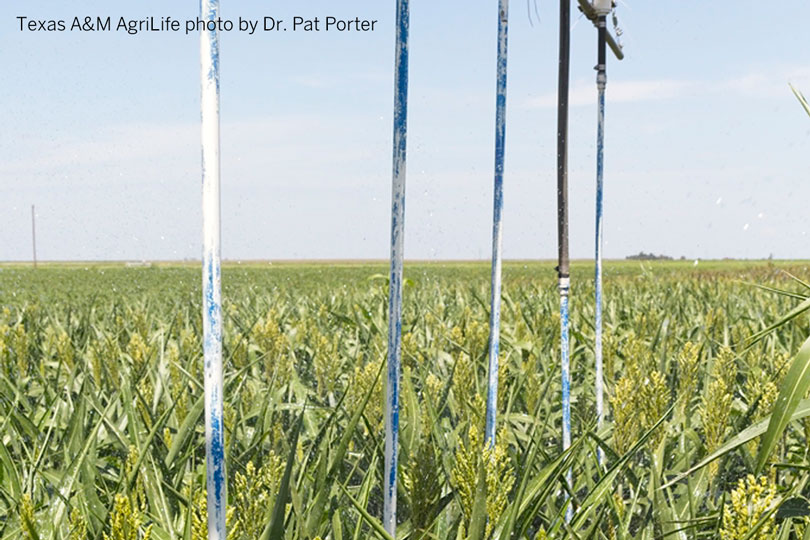By Justin Walker
Communications Specialist
Specialists with Texas A&M AgriLife Extension Service are researching the use of chemigation as a solution for sugarcane aphids in grain sorghum.
Chemigation is a practice where chemicals or pesticides are applied to the land through an irrigation system. It was a common practice in the ’80s and ’90s for insect and mite control.
Dr. Ed Bynum, AgriLife Extension entomologist in Amarillo, said it hasn’t been talked about much in the past decade or so, but growers are starting to ask about it now in regard to sugarcane aphid control.
“We are revisiting chemigation for insect pest management,” Bynum said at the High Plains Irrigation Conference in Amarillo.
Blayne Reed, AgriLife Extension integrated pest management agent for Hale, Swisher and Floyd counties, ran a trial in 2015 using Sivanto on a field. The first year saw excellent control, so a second test was conducted in 2017. Bynum said boom and irrigation drop nozzles were used to simulate chemigation.
“The control provided by aerial and ground were not good compared to the chemigation with Sivanto and Transform when directed up into the canopy with 15, 45 and 60 degree splash plate,” Bynum said. “
Bynum said this could be a good alternative for farmers in the fight against sugarcane aphids.
“Aerial application can be good if you time it right and get a good application coverage,” he said. “Otherwise, populations can rebound pretty quickly.”
Click here for more about chemigation.

